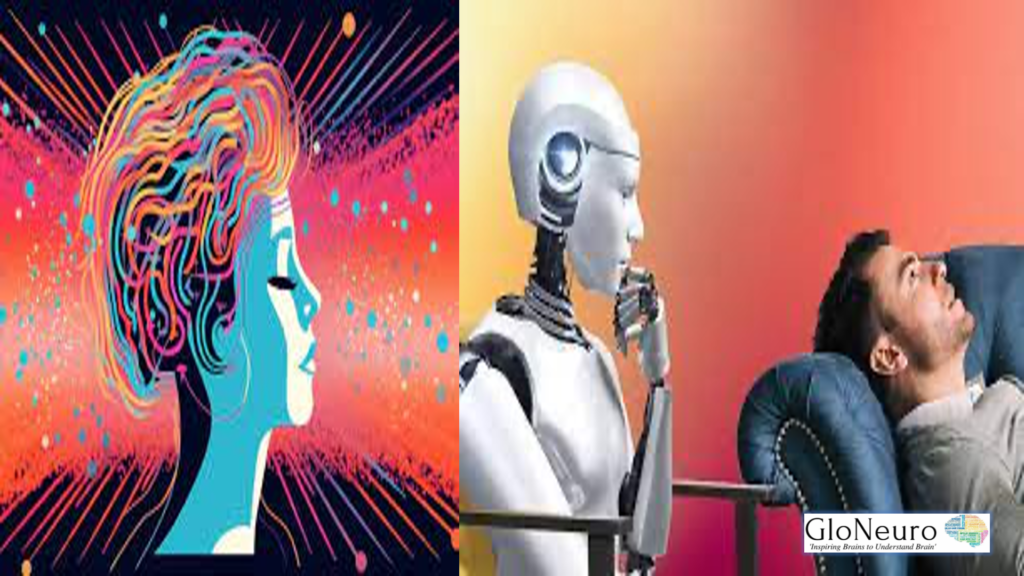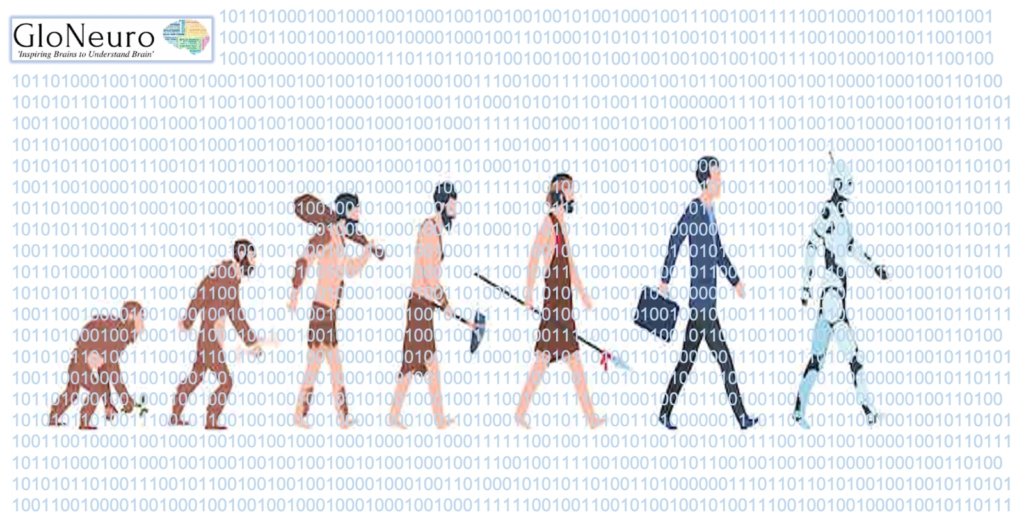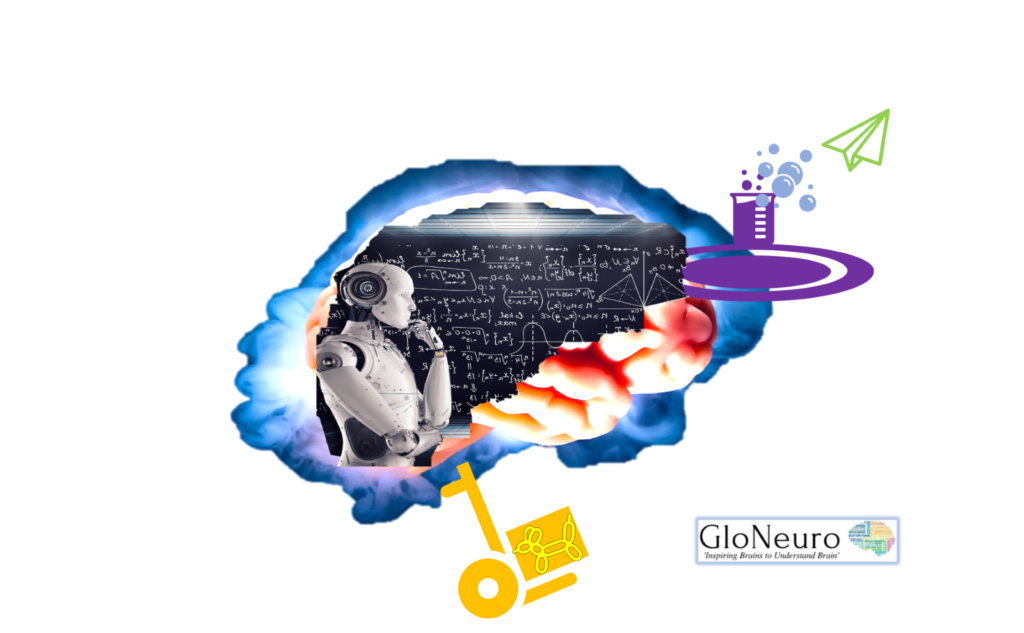July 12, 2023
Author: Paalki Sethi
Editor: Dr. Jitendra Kumar Sinha
In a world where the demands of modern life can often leave us feeling overwhelmed and mentally exhausted, finding effective and accessible solutions for mental well-being is crucial. Imagine a personal voice assistant that understands your struggles, offers guidance, and empowers you to overcome the challenges of depression and anxiety. Thanks to groundbreaking research led by the University of Illinois Chicago, this vision has become a reality. Enter Lumen, an AI voice assistant app designed to provide psychotherapy for individuals experiencing mild depression and anxiety. This innovative technology has the potential to revolutionize mental health treatment, offering a lifeline to those in need while addressing the pressing issue of limited clinical resources. Join us on this captivating GloNeuro journey as we explore the remarkable impact of Lumen and its ability to transform the landscape of mental health care.
In a world where mental health challenges are on the rise, innovative solutions are needed to bridge the gap between the demand for therapy and limited clinical resources. Recent advancements in artificial intelligence (AI) have sparked interest in utilizing chatbots and virtual assistants as potential tools for mental health treatment. Excitingly, a pilot study led by researchers from the University of Illinois Chicago has demonstrated the potential of an AI voice assistant app, called Lumen, in alleviating symptoms of mild depression and anxiety. Published in Translational Psychiatry, the study reveals not only improved depression and anxiety symptoms but also notable changes in brain activity following eight sessions of problem-solving therapy with Lumen.
Led by co-first authors Dr. Olusola A. Ajilore and Thomas Kannampallil, in collaboration with esteemed researchers from Washington University in St. Louis and Pennsylvania State University, this groundbreaking study signifies a significant step toward harnessing the power of AI in mental healthcare. Lumen, skillfully integrated into the Amazon Alexa application, was developed by Dr. Ajilore and senior author Dr. Jun Ma, the Beth and George Vitoux Professor of Medicine at UIC, to deliver a form of psychotherapy that empowers individuals to overcome their challenges.

The study involved over 60 patients with mild-to-moderate depression and anxiety symptoms. Two-thirds of the participants engaged in eight problem-solving therapy sessions using the Lumen app on a study-provided iPad, while the remaining third served as a “waitlist” control group, receiving no intervention. After the intervention period, the Lumen group exhibited significant reductions in scores for depression, anxiety, and psychological distress compared to the control group. Notably, these improvements in symptomatology were accompanied by enhancements in problem-solving skills, as evidenced by increased activity in the dorsolateral prefrontal cortex—an essential brain region associated with cognitive control.
What makes Lumen a game-changer is its ability to reshape the way individuals perceive and address their problems. By leveraging voice-based technology, the app promotes pragmatic and patient-driven behavior therapy, empowering users to adopt a problem-solving mindset and prevent emotional overwhelm. Dr. Ma emphasizes that while digital mental health services should not aim to replace human therapists, they play a pivotal role in addressing the vast gap between supply and demand. Lumen fills this void by providing effective and safe treatment options to individuals who would otherwise lack access to traditional therapy.
Building on the success of this pilot study, researchers are now conducting a larger trial to compare Lumen’s efficacy against both a waitlist control group and patients receiving human-coached problem-solving therapy. It is important to note that the goal of Lumen is not to outperform human therapists but rather to meet the desperate need for accessible mental health interventions. By recognizing the limitations in the mental health system’s capacity to meet the increasing demand, Lumen represents a promising solution that can revolutionize mental health care and reach those who are currently underserved.
Furthermore, the study highlights the potential of Lumen to benefit specific populations. Analysis reveals that women, minorities, individuals with lower educational attainment, and those with lower digital health literacy may derive even greater advantages from using Lumen. As marginalized groups often face barriers to mental health services and limited access to resources, Lumen presents a valuable opportunity for easy and on-demand support, particularly given the widespread prevalence of mobile phones with voice applications.
In a world where mental health challenges continue to escalate, harnessing the power of AI in mental healthcare is an exciting and necessary frontier. The groundbreaking results of this pilot study demonstrate that AI voice coaches like Lumen hold the potential to transform the lives of individuals struggling with depression and anxiety. By combining technology with evidence-based therapy, we can bridge the gaps in mental health care and provide accessible support to those in need. The future of mental health treatment is here, and Lumen is leading the way towards a brighter and more inclusive tomorrow.
References:
- Kannampallil, T., Ajilore, O.A., Lv, N. et al. Effects of a virtual voice-based coach delivering problem-solving treatment on emotional distress and brain function: a pilot RCT in depression and anxiety. Transl Psychiatry 13, 166 (2023). https://doi.org/10.1038/s41398-023-02462-x
- Palanica A, Thommandram A, Lee A, Li M, Fossat Y. Do you understand the words that are comin outta my mouth? Voice assistant comprehension of medication names. NPJ Digital Medicine. 2019;2:1–6.
- Kannampallil TG, Ronneberg CR, Wittels N, Kumar V, Lv N, Smyth JM, et al. Design and formative evaluation of a voice-based virtual coach for problem-solving treatment: observational study. JMIR Formative Res. 2022;6:e38092.
- Goldstein-Piekarski AN, Ball TM, Samara Z, Staveland BR, Keller AS, Fleming SL, et al. Mapping neural circuit biotypes to symptoms and behavioral dimensions of depression and anxiety. Biol Psychiatry. 2022; 91:561–71.
- Williams LM, Pines A, Goldstein-Piekarski AN, Rosas LG, Kullar M, Sacchet MD, et al. The ENGAGE study: Integrating neuroimaging, virtual reality and smartphone sensing to understand self-regulation for managing depression and obesity in a precision medicine model. Behav Res Ther. 2018; 101:58–70. https:// doi.org/10.1016/j.brat.2017.09.012.
Explore New Articles from GloNeuro
From Womb to World
Exploring the Effects of Maternal Anxiety on Fetal Brain Development
Motherhood is a transformative journey filled with immeasurable joy, but it is not without its fair share of anxiety and stress. The emotional well-being of expectant mothers plays a pivotal role in shaping the developing foetal brain, setting the stage for a child’s lifelong trajectory.



